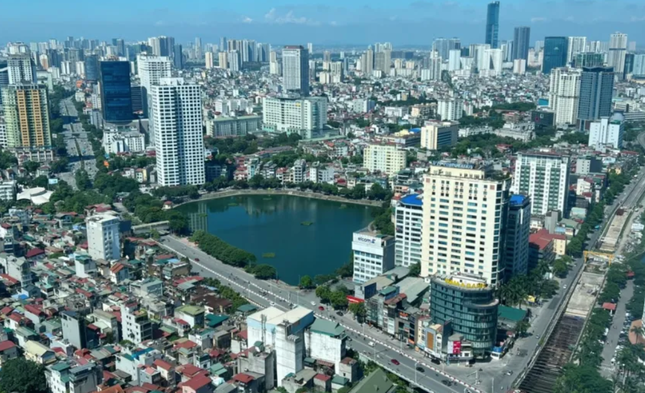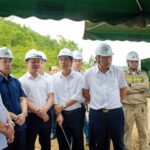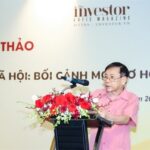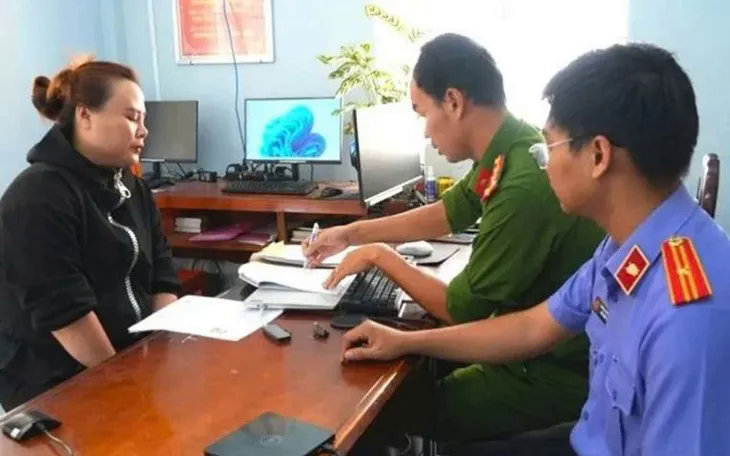Government and Provincial People’s Committees establish funds for social housing development
National Assembly Chairwoman Tran Thanh Man has signed and issued a resolution on experimental mechanisms and policies for social housing development.
Effective from June 1st, the resolution permits the establishment of the National Housing Fund, a non-budgetary state financial fund with legal personality and non-profit operations.
The National Housing Fund comprises the Central Housing Fund established by the government and local housing funds set up by the Provincial People’s Committees.
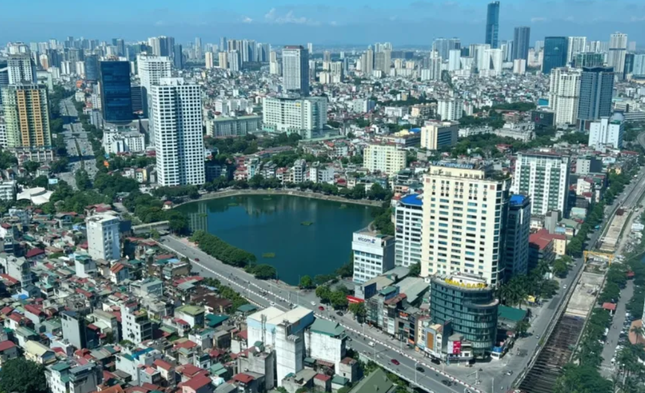
The National Housing Fund operates on a non-profit basis. (Illustrative image)
The National Housing Fund is formed from various sources, including state budget allocations, funds equivalent to the value of land invested in technical infrastructure for social housing construction as per the Law on Housing, proceeds from the sale of public housing assets, and revenue from land-use rights auctions.
This fund is dedicated to investing in social housing construction, developing technical and social infrastructure for social housing projects, and creating social housing units for rent or lease to officers, officials, public employees, and laborers.
Post-completion audit for construction projects
Another novelty is that social housing investment projects are exempt from the requirement to undergo feasibility study report appraisal by construction sector specialists as mandated by construction laws.
Instead, investors and decision-makers independently organize the appraisal and approval of the feasibility study reports, taking full responsibility for ensuring compliance with construction regulations.
Additionally, the resolution outlines specific criteria for determining sale and rent-to-buy prices for social housing.
Specifically, based on the prescribed methods for establishing sale and rent-to-buy prices and regulated profit margins per housing laws, investors either independently or through qualified construction consultants conduct a review before approving these prices.
The determination of sale and rent-to-buy prices for social housing applies to one or several structures within a social housing investment project, depending on the implementation phase or investment allocation, individual component projects, or the entire project.
Upon completion and acceptance of the construction work, the investor is responsible for conducting an audit and settling construction investment costs as per regulations. The results are then submitted to the specialized agency under the Provincial People’s Committee for review of the sale and rent-to-buy prices.
Foreign laborers are also eligible for the social housing policy
Regarding eligibility for social housing support, the resolution specifies that for provinces and centrally-run cities undergoing administrative rearrangement, the conditions for housing with beneficiaries eligible to purchase or rent-to-buy are based on the administrative unit’s scope.
In cases where beneficiaries of social housing support have a distant workplace, the condition for eligibility to purchase or rent-to-buy is not owning a house or owning one that is far from the workplace.
Depending on the locality’s actual conditions, the Provincial People’s Committee elaborates on cases where beneficiaries own a house far from their workplace yet still qualify for social housing support.
Notably, the resolution permits enterprises, cooperatives, unions of cooperatives, government agencies, political organizations, socio-political organizations, and public non-business units to rent social housing to accommodate their officers, officials, public employees, workers, and laborers, including foreign laborers.
Manufacturing enterprises within industrial parks are allowed to rent worker dormitories within the parks to house their workers and laborers, including foreigners.
The National Assembly resolution also states: The Ministry of Defense and the Ministry of Public Security shall appoint investors or approve investment policies and then appoint investors for projects constructing housing for the people’s armed forces after obtaining written agreement from the Provincial People’s Committees on the land plot for investing in housing construction for the people’s armed forces.
‘The Dark Side of Social Housing: How ‘Cò’ Profiteers are Distorting the Market’
“There is a persistent presence of brokers in the social housing sector, taking advantage of the high demand for such housing and creating a chaotic market with their resale practices. Mr. Nguyen Van Khoi, Chairman of the Vietnam Real Estate Association, highlights how these practices cause significant distress for legitimate buyers seeking social housing.”
Why Are Hanoi Apartment Prices Soaring?
The soaring prices of apartments in Hanoi can be attributed to the high input costs of developing a commercial residential project. Land costs, which account for 25% of the total project cost, surge to 40-50% for prime locations. Additionally, construction costs have been on a steep upward trajectory recently, further contributing to the overall expense.

